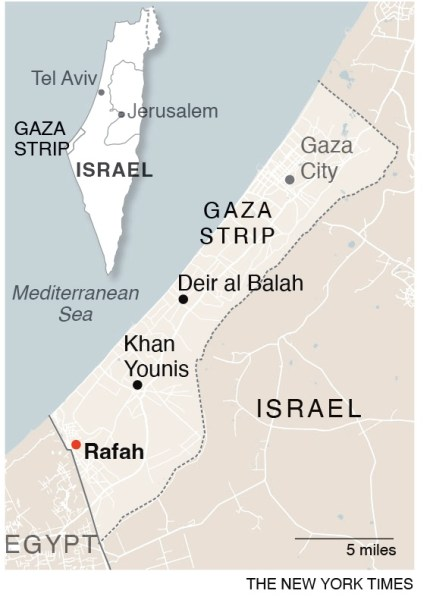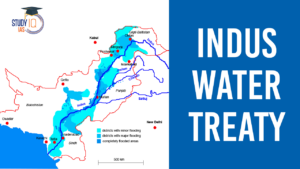Table of Contents
Rafah
Context: The Israeli military took over the Rafah border crossing between the Gaza Strip and Egypt, and its tanks advanced into the southern town of Rafah in Gaza following a series of overnight air strikes on the Palestinian territory.
About Rafah
- Rafah is a city situated in the southern part of Gaza, near the Egypt border.
- The city was divided into Gazan and Egyptian sections when Israel withdrew from the Sinai Peninsula in 1982.
- Initially, Rafah served as a refuge for people fleeing from northern Gaza during the early stages of the most recent Israel-Gaza conflict.
- Currently, Rafah’s population has increased to approximately 1.3 million people, accounting for more than half of Gaza’s total population.

Deepfakes in Elections
Context: The Election Commission of India (ECI) has officially addressed the issue of deepfakes during the election season, instructing political parties not to share such AI-manipulated content on social media.
More In News
- If parties become aware of deepfakes, they are required to remove them within 3 hours and issue a warning to the responsible party member.
- The directive was issued to all recognized parties, emphasising the significant risk deepfakes pose in spreading misinformation, potentially swaying voter opinions, and eroding trust in the electoral process.
| What is Deepfakes? |
|
Political Parties and Deepfake Usage
- Several major political parties including the BJP, Congress, DMK, and AIADMK have been noted to share deepfakes or AI-generated content during the ongoing elections.
- The BJP reported to the ECI concerning alleged deep fake videos involving public figures like Home Minister Amit Shah and actors Aamir Khan and Ranveer Singh, which were used to spread false narratives.
ECI’s Stance on AI in Campaigns
- While the ECI has not discouraged the use of AI for creating campaign material, it has specifically warned against the dissemination of content that constitutes misinformation or involves impersonation.
Protection and Reporting Measures
- The ECI has emphasised the protection of women from derogatory content and the importance of maintaining the dignity of all individuals in campaign materials.
- Parties are encouraged to report unlawful information and fake accounts resembling their official social media handles.
- For unresolved issues after reporting to social platforms, parties are advised to approach the Grievance Appellate Committee under the IT Rules 2021.
Unaddressed and Vague Aspects
- The effectiveness of the ECI’s directive, issued after two election phases, remains uncertain, particularly how it will be enforced.
- The directive’s language is considered unclear, especially regarding the monitoring and regulation of content shared by parties’ official accounts.
- The coverage of encrypted messaging platforms like WhatsApp, a major vector for spreading misinformation, is not explicitly addressed in the ECI’s letter.
- The ECI has also not commented on the use of AI-based real-time calls to voters, which occur outside social media platforms and can be manipulated for misinformation.
Examples, Data and Case Studies
- Artificial Intelligence (GS 3): Ukraine’s Ministry of Foreign Affairs has launched an AI-generated avatar named Victoria Shi to serve as its digital spokesperson.
- Dressed in professional attire, Victoria Shi delivers consular updates on social media platforms.
- Although her appearance is created by AI, the information she presents is written and verified by humans.
- International Relations (GS 2): India and Ghana have agreed to operationalize India’s Unified Payment Interface (UPI) on Ghana’s Ghana Interbank Payment and Settlement Systems (GHIPSS) within 6 months.
- Population Growth (GS 1): According to the UN Population Division, India’s population growth is projected to reach 1.7 billion by 2065.
| Key Terms Recently in News |
|


 Indus Water Treaty 1960 Suspended by Ind...
Indus Water Treaty 1960 Suspended by Ind...
 5 Years of SVAMITVA Scheme and Its Benef...
5 Years of SVAMITVA Scheme and Its Benef...
 Places in News for UPSC 2025 for Prelims...
Places in News for UPSC 2025 for Prelims...





















